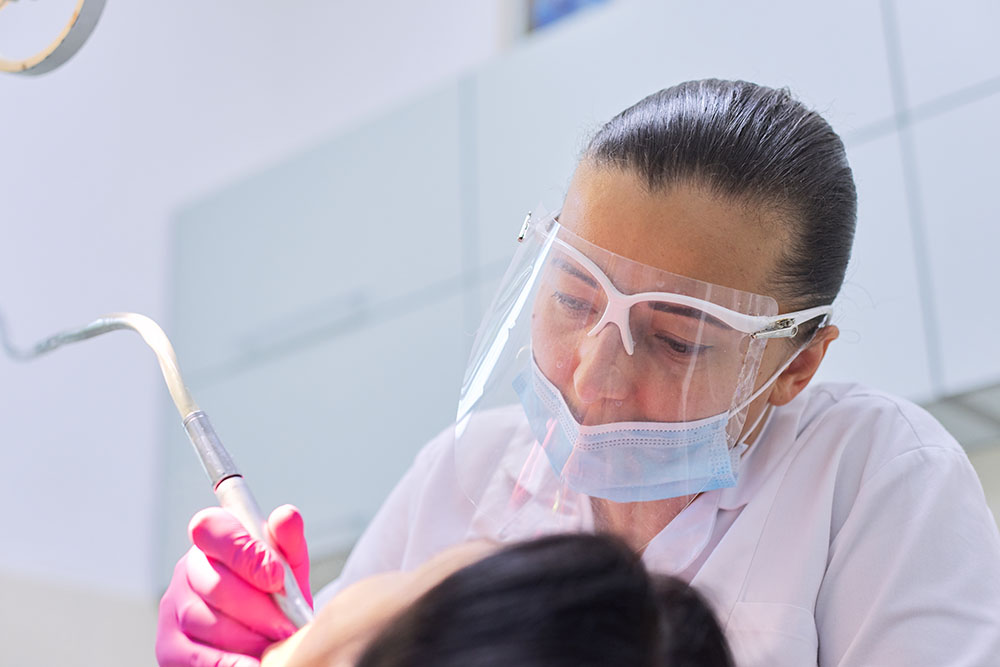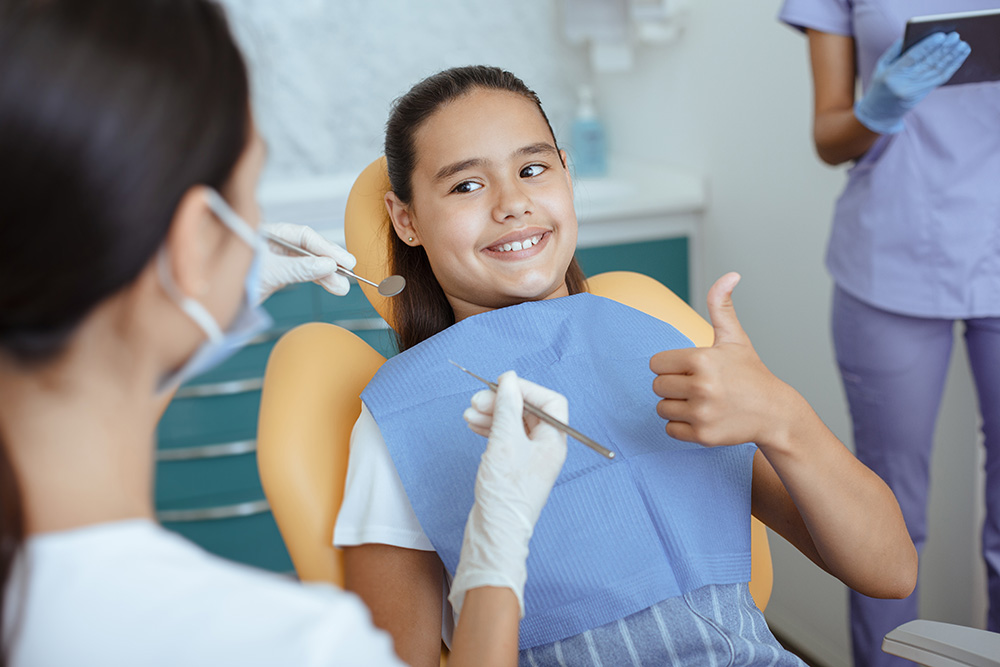Dental Exams
A dental exam is not just a quick look/see but rather a critical evaluation of your oral health status. During this exam, we check for oral cancer; evaluate your jaw muscles, joint and occlusion (bite). We take a variety of measurements to aid in the diagnosis of gum disease (gingivitis) and bone loss (periodontitis) and recession. We examine all the teeth for any fracture lines, decay and broken restorations. At this appointment, we also take any necessary x-rays to aid in our treatment planning.
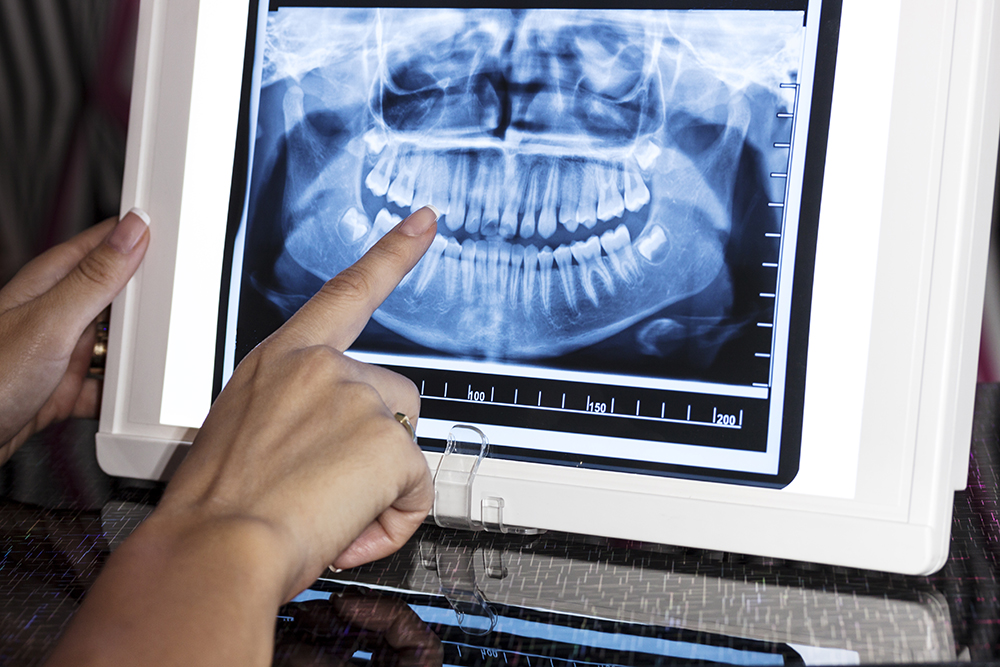
Dental Hygiene & Periodontal Gum Therapy
Your oral health and general health go hand in hand. Poor oral health not only impacts your gums and teeth but also impacts your systemic health. It has a direct impact on diseases such as Diabetes, Cardiovascular disease, Arthritis, etc. Without routine dental cleaning, plaque, a sticky white biofilm, builds up on your teeth. The bacteria within the plaque often leads to gingivitis (gum disease). This can make you more susceptible to heart disease, clogged arteries, strokes and other health issues. Therefore, removing plaque and its harder, more tenacious counterpart, calculus, is very important to your overall health. Plaque can be removed by regular brushing and flossing but calculus can only be removed by a dental hygienist or dentist. If calculus is left on the teeth for a long period of time, the bacteria present in it can eat away at your gums and bone eventually causing mobility of the teeth and even eventual tooth loss.
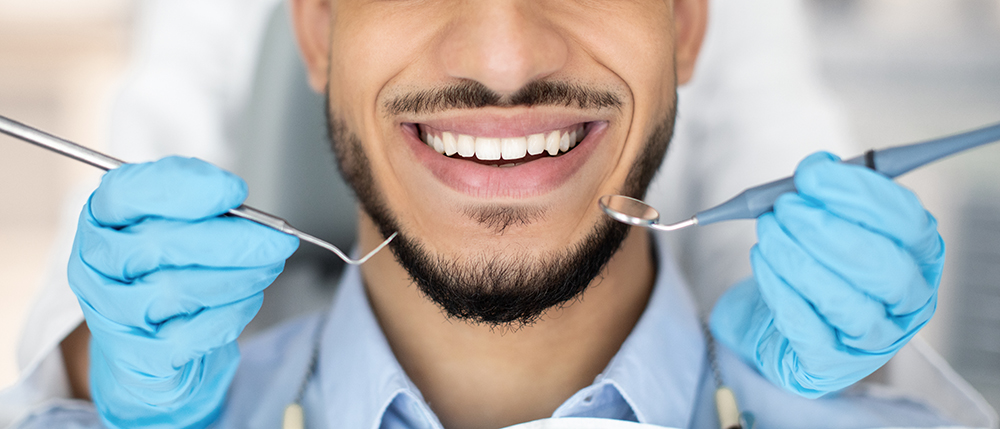
Restorative Dentistry – Fillings
When your tooth is only mildly decayed, chipped or has a crack, we most likely can treat it using a composite resin. We match the composite resin to the color of your natural teeth to ensure it looks just like your natural tooth. In exceptional cases, where extra strength is needed, we may still use metal amalgam filling material.
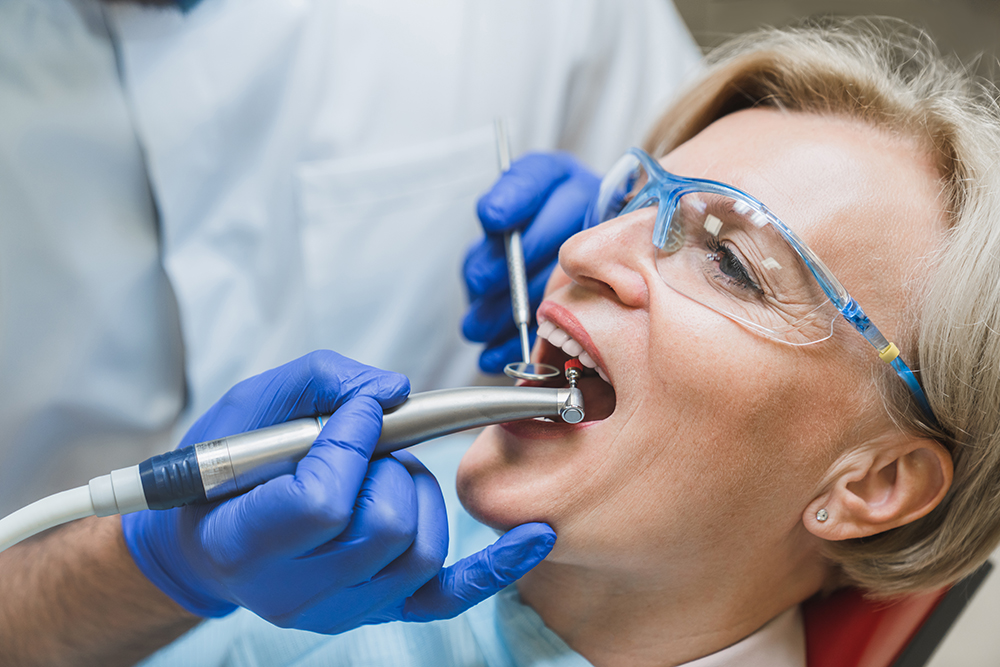
Crowns
A crown most commonly refers to a dental cap, a type of dental restoration that completely caps or encircles a tooth or dental implant. A crown may be needed when a large cavity threatens the health of a tooth. A crown is typically bonded to the tooth by dental cement. Crowns are also usually required after a root canal treatment or irreparable tooth fractures. We use advanced digital 3D scanners to create the perfect impression of your tooth which then goes to a dental lab for fabrication of the crown.

Bridges
If you have one or more missing teeth, a dental bridge can fill the gap with one or more artificial teeth. A bridge involves creating a crown for the teeth on either side of the missing tooth or teeth with a pontic/artificial tooth in between. It is usually porcelain fused to metal or ceramic and is cemented in place. However, occasionally they may require modifying healthy teeth next to the missing teeth. Bridges require careful cleaning using threader and floss.
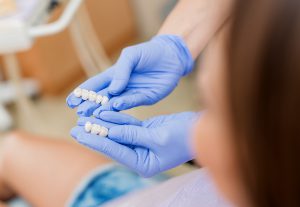
Dental Implants
A dental implant is a “fake root” that is placed in the jaw bone to support a dental prosthesis such as a crown or bridge. Implants are a more popular, effective and preferred alternative for replacing missing teeth than dentures or fixed bridges. Dental implants feel and function like natural teeth.
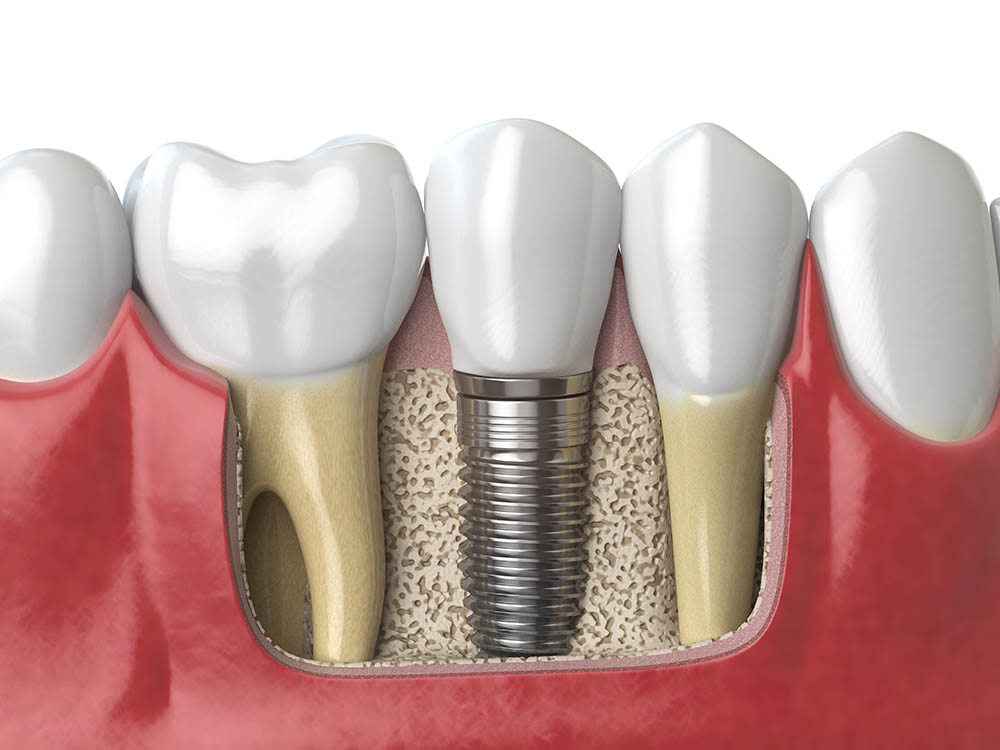
Veneers
Veneers, sometimes called porcelain veneers or dental porcelain laminates, are wafer-thin, custom-made shells of tooth-colored materials designed to cover the front surface of teeth to improve their appearance. These shells are bonded to the front of the teeth changing their color, shape, size, or length.
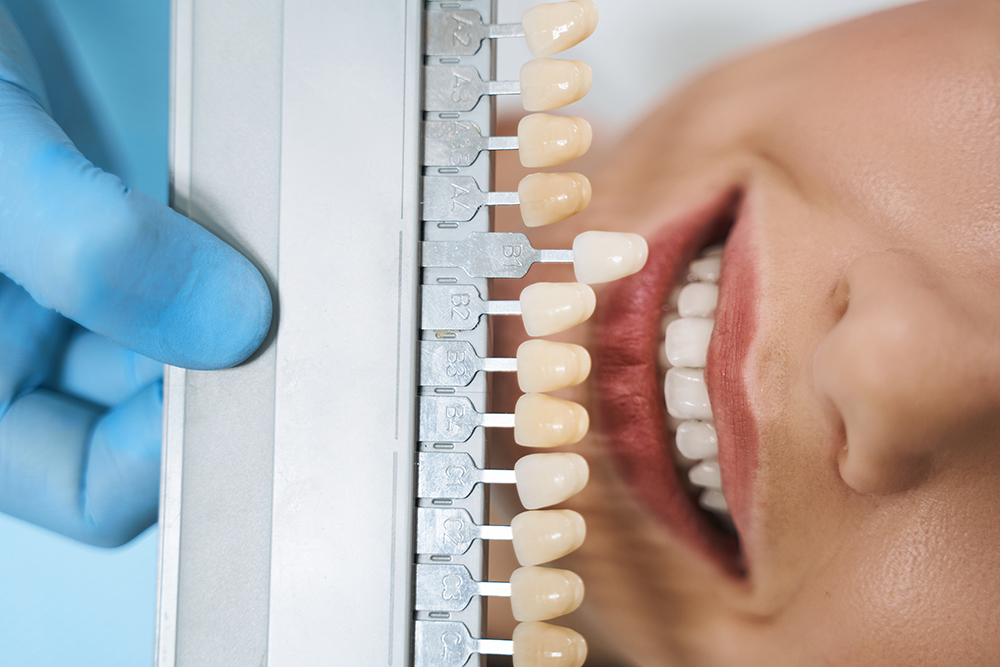
Root Canal Treatment
Root canal treatments are effective and safe for teeth whose pulp has become inflamed or infected. The pulp of a tooth contains the nerves and blood vessels of the tooth. Signs and symptoms that you may need root canal therapy are a tooth that is sensitive to heat, cold or pressure or all three, a pimple on the gum or a tooth that is darker than the ones next to it. Sometimes teeth with excessive decay, cracks, trauma require root canal treatment to make you feel comfortable again. By removing the infected, inflamed, and painful internal nerve, replacing it with a root filling material, and covering the tooth with a crown, we can get you out of pain while still saving your tooth!
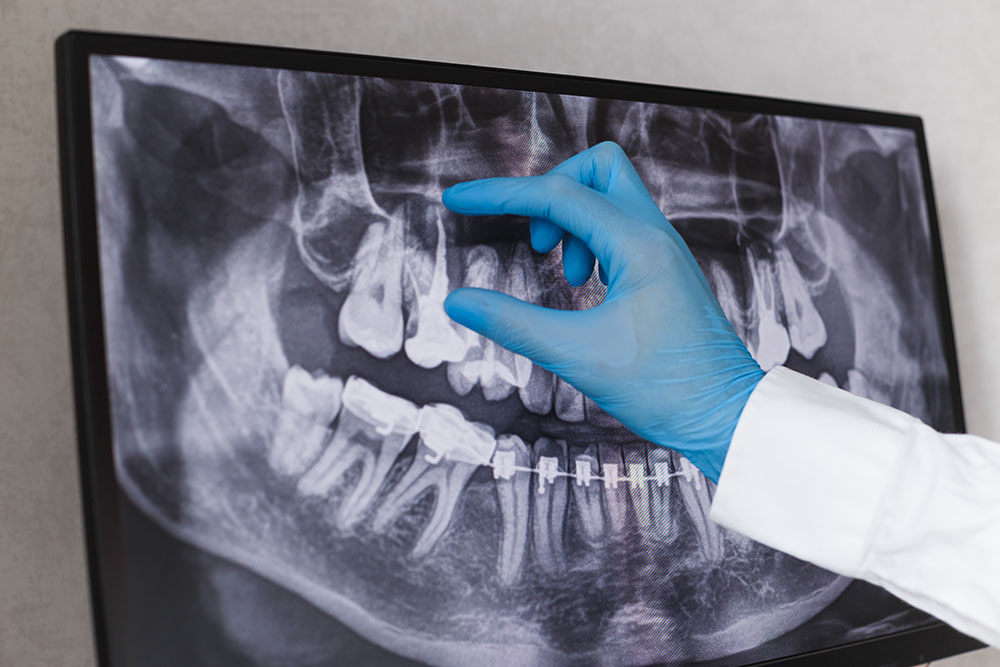
Extractions/Wisdom Teeth Extractions
Wisdom teeth are notorious for causing oral health complications. However, this is not always the case. They may erupt without any issues what so ever and not require removal. If they do present a problem or cause crowding, they may require extraction. The best way to assess the advantages or disadvantages of extracting wisdom teeth is to consult one of our doctors.
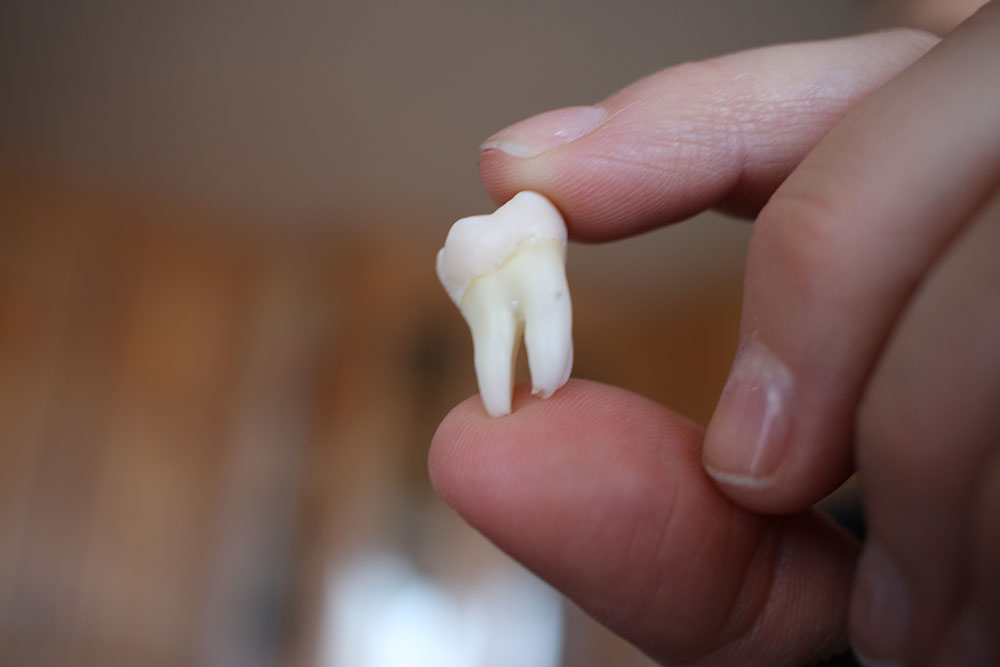
Nightguards and Occlusal Splints
Nightguards and Occlusal Splints are great oral instruments that can help prevent clenching and grinding which can cause chipping of the teeth. They may also relieve jaw pain and restore the correct position of your jaw as part of a treatment plan.

Invisalign/Clear Aligners
Invisalign is the alternative to metal braces for teens and adults who want a straighter smile without the unsightly appearance of metal braces. Invisalign uses a series of clear removable teeth aligners to help correct your bite.

Botox Treatment
Botox is a protein that has been purified and medically has both cosmetic and therapeutic applications. It is administered to specific areas of the face to temporarily relax a client’s muscles. Botox treatments are not new in the medical field. They have been around for many years to treat frown lines, wrinkles and other muscular conditions associated with aging. Botox has therapeutic uses in dentistry as well. It can be used to treat problems associated with tight jaw muscles resulting from grinding and clenching.
A Botox treatment can relax facial muscles. The benefits of which may include:
- To reduce the strength of chewing muscles thus reducing damaging forces on your teeth
- To reduce the strength of clenching muscles and help reduce the frequency of tension-type headaches
- To decrease forehead wrinkles and frown lines
- To smooth out wrinkles
These benefits can all lead to a youthful, smoother, wrinkle-free appearance which will compliment your smile

Sports Guards
If you are an active participant in any contact sport such as boxing, soccer, football, hockey, rugby, or lacrosse, we strongly recommend getting a sports guard. A proper sports guard can prevent damage to your teeth. It not only helps reduce the effects of a concussion, but can also avoids months and years of extensive treatments to restore teeth damaged by these activities.

Dentistry for Children
We love kids and it always makes our day to have them visit our office. We try to make sure that they have fun and that the visit is a positive experience for them. We recommend that you bring in your children for their first visit within six months of the eruption of their first tooth or by one year of age.
As a parent, you are a big part of making the visits a fun and positive experience. Get them excited about this new activity and present it as something they get to do instead of something they must do. They should be excited and proud of being old enough to go to the dentist.
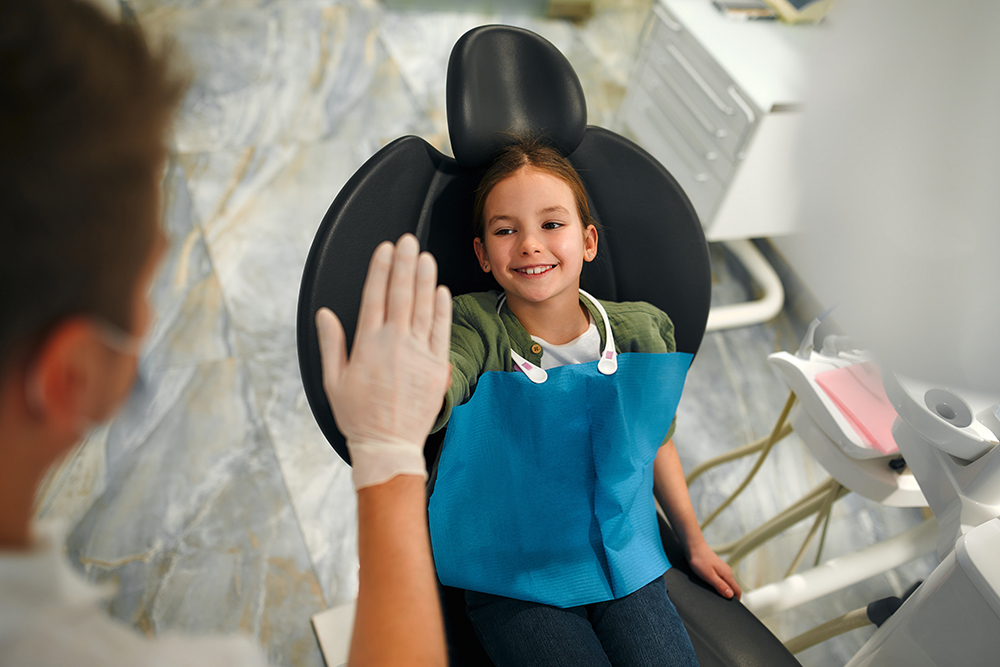
Sedation Dentistry
Sedation dentistry uses medication to help clients who are nervous relax during dental procedures. It is sometimes referred to as “sleep dentistry,” although that’s not entirely accurate. In Sedation Dentistry clients are usually awake as opposed to a general anesthetic where you are asleep. Sedation Dentistry is most appropriate for people with a real fear or anxiety that is preventing them from going to the dentist. Sedation Dentistry may also be appropriate for people who have a low pain threshold, can’t sit still in the dentist’s chair, have very sensitive teeth, have a bad gag reflex or need a large amount of dental work completed and prefer to have as much done at one time as possible.
